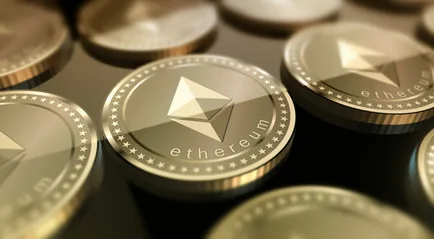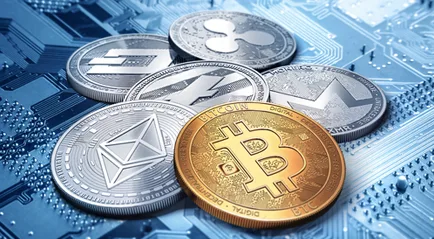A token is a type of cryptocurrency that can be created by anyone, without the need for much technical know-how or skill.
This is one of the reasons there are so many cryptocurrencies on the market - tokens have enabled almost any brand, company or idea to make their own in a matter of minutes.
ERC20 is a technical standard for tokens issued on the Ethereum blockchain.
In this guide we explain how they work, list some popular ones and show you where to store them.
What are ERC20 tokens?
Since its launch in 2015, Ethereum has become one of the driving forces behind the growth of cryptocurrency. Initial coin offerings (ICOs) have raised billions of dollars in funding for crypto projects from all around the world, and most of these ICOs are based on the Ethereum platform. Buyers contribute Ether (ETH) or bitcoin (BTC) to participate in a crowdfunding sale, and in return receive some of the ICO project’s native tokens.
ERC20 is a technical standard for tokens issued on the Ethereum blockchain, providing a list of rules that all Ethereum-based tokens must follow. These include how the tokens can be transferred, how transactions are approved, how users can access data about a token and the total supply of tokens. The protocol is necessary to ensure compatibility between the many different tokens issued on Ethereum.
Just like bitcoin, Litecoin and any other cryptocurrency, ERC20 tokens are blockchain-based assets that have value and can be sent and received. The difference is that instead of running on their own blockchain, these tokens are issued on the Ethereum network. This means they’re hosted by Ethereum addresses and are sent using Ethereum transactions.
ERC20 tokens are "smart assets" that can be programmed to do certain things by using smart contracts. For instance, tokens can be programmed to be paid out to employees by the hour or minute instead of at the end of the work week. This sort of programmability allows for new sorts of financial applications and innovations and is part of what makes Ethereum special.

"In 2018 as part of a hackathon I created a cryptocurrency in about 20 minutes by using the ERC20 token standard. It cost me about AUD $30 of ETH at the time. The goal was to use the tokens as reward points that would automatically be paid out to anyone who used green financial products. Doing so helped me bring my prototype to life by having a working cryptocurrency that I was able to send to judges and other participants."
Popular ERC20 tokens list
Many crypto newcomers are surprised to discover just how prevalent ERC20 tokens are. Take a look at a list of the top 100 digital currencies by market cap, and you'll see plenty of well-known currencies that use the ERC20 standard, including:
- Rocket Pool (RPL)
- PAX Dollar (USDP)
- The Sandbox (SAND)
- Loopring (LRC)
- Basic Attention Token (BAT)
Important: Some coins are launched as an ERC20 token, before being migrated over to their own blockchain. This means that the token will have to be swapped for a coin on the new blockchain once the migration is complete. If this happens, you will need to migrate your tokens over to the new chain, and will no longer be able to send the tokens to an Ethereum-based wallet. If you send coins from one blockchain to a wallet on another blockchain, you will lose your coins. Make sure you know which blockchain your coins or tokens are hosted on before sending them to a new wallet or address, especially as some tokens may exist across multiple chains.
Find out more about altcoins in our top 100+ list.
Did you know?
Want to know why they're called ERC20 tokens? The "ERC" stands for "Ethereum Request for Comments", which is an official protocol used to propose improvements to the Ethereum network. The "20" is the unique ID number used to identify the proposal.
Which wallets support ERC20 tokens?
If you’re buying any digital currency that’s issued as an ERC20 token, you’ll need to find a wallet that’s compatible with these types of tokens. Happily, because ERC20 tokens are so popular, there are plenty of wallets to choose from, including the following:
To find out ways to securely store your ERC20 tokens, you can begin by comparing the above wallets. You can also learn more about storing your cryptocurrency in our ultimate guide to wallets.
Sources
Ask a question
More guides on Finder
-
How to restake Ethereum?
Ethereum restaking allows you to stake your ETH tokens across multiple protocols at once. But how does it work and what is the benefit?
-
Ethereum statistics Australia 2021
We've rounded up the essential statistics on Ethereum.
-
How to mine Ethereum (ETH)
Find out what Ethereum mining is, how it works, and how you can earn ETH profitably.
-
Ethereum (ETH) Price Prediction 2025, 2030 & 2035: October 2025 Report
A panel of industry specialists give us their predictions on the price of Ethereum to 2035.
-
How to buy Ethereum (ETH) Australia
Learn how to buy Ethereum in Australia with our simple step-by-step guide and tips on what to know before you get started.


